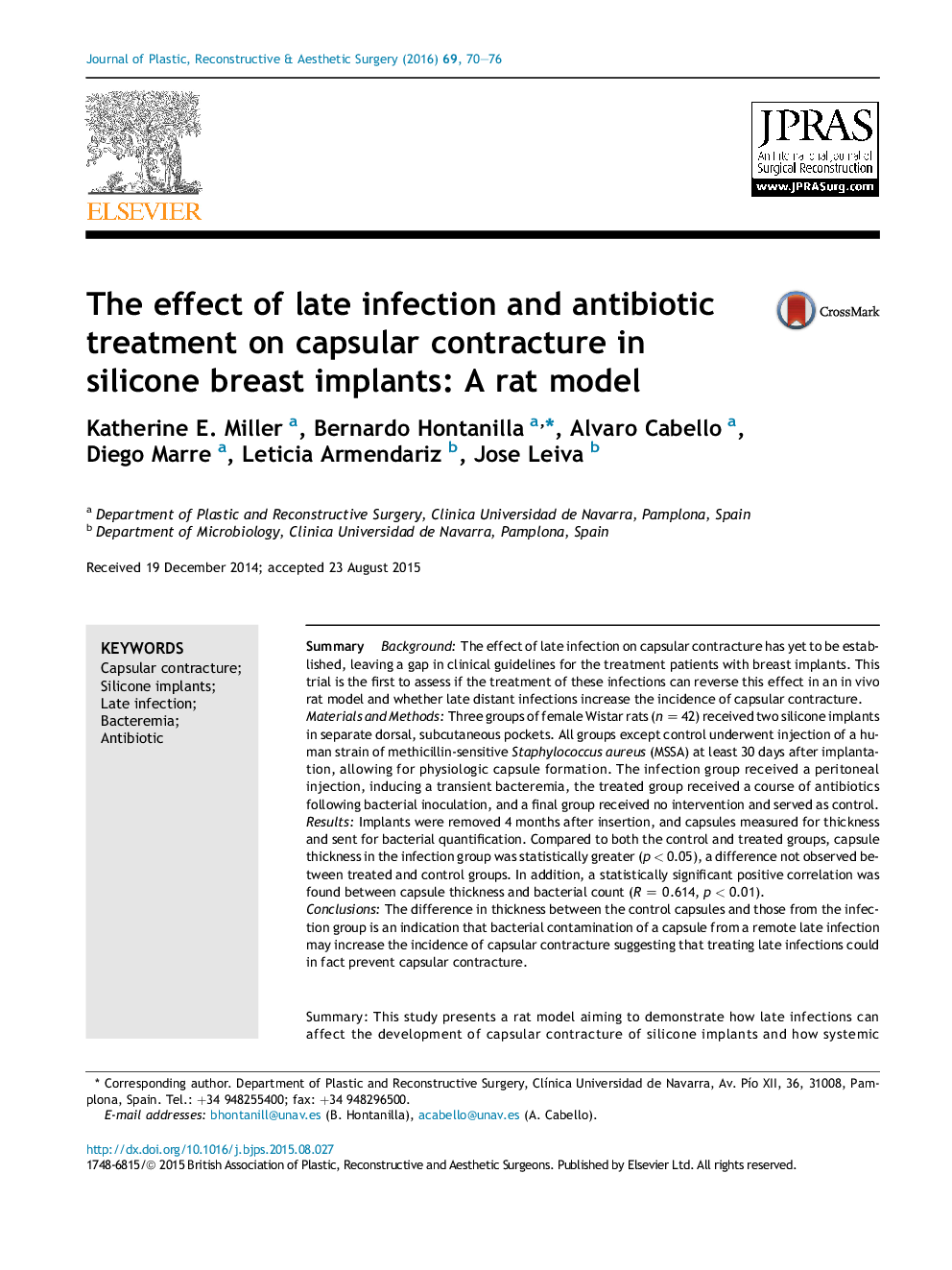| Article ID | Journal | Published Year | Pages | File Type |
|---|---|---|---|---|
| 4116978 | Journal of Plastic, Reconstructive & Aesthetic Surgery | 2016 | 7 Pages |
SummaryBackgroundThe effect of late infection on capsular contracture has yet to be established, leaving a gap in clinical guidelines for the treatment patients with breast implants. This trial is the first to assess if the treatment of these infections can reverse this effect in an in vivo rat model and whether late distant infections increase the incidence of capsular contracture.Materials and MethodsThree groups of female Wistar rats (n = 42) received two silicone implants in separate dorsal, subcutaneous pockets. All groups except control underwent injection of a human strain of methicillin-sensitive Staphylococcus aureus (MSSA) at least 30 days after implantation, allowing for physiologic capsule formation. The infection group received a peritoneal injection, inducing a transient bacteremia, the treated group received a course of antibiotics following bacterial inoculation, and a final group received no intervention and served as control.ResultsImplants were removed 4 months after insertion, and capsules measured for thickness and sent for bacterial quantification. Compared to both the control and treated groups, capsule thickness in the infection group was statistically greater (p < 0.05), a difference not observed between treated and control groups. In addition, a statistically significant positive correlation was found between capsule thickness and bacterial count (R = 0.614, p < 0.01).ConclusionsThe difference in thickness between the control capsules and those from the infection group is an indication that bacterial contamination of a capsule from a remote late infection may increase the incidence of capsular contracture suggesting that treating late infections could in fact prevent capsular contracture.
